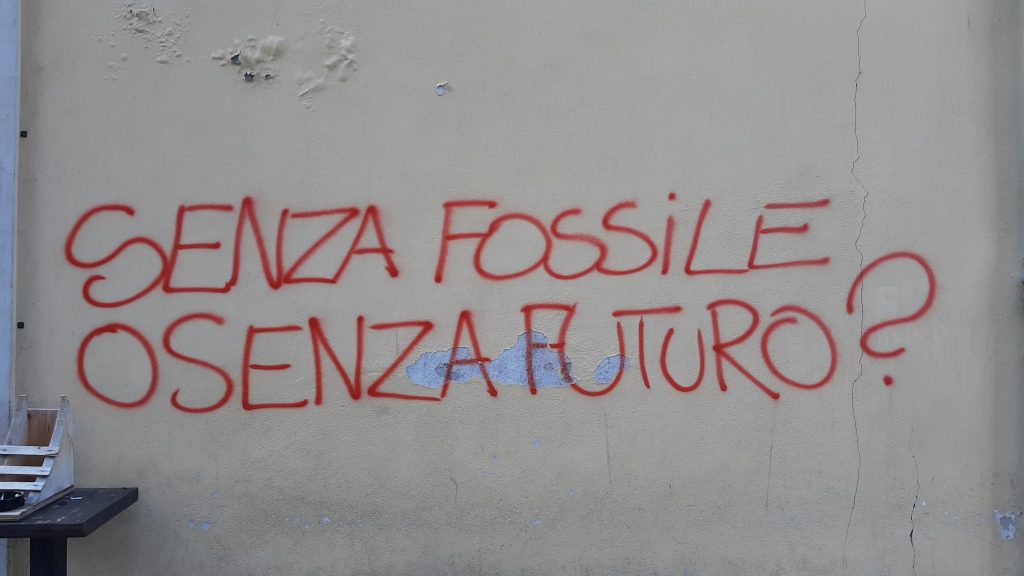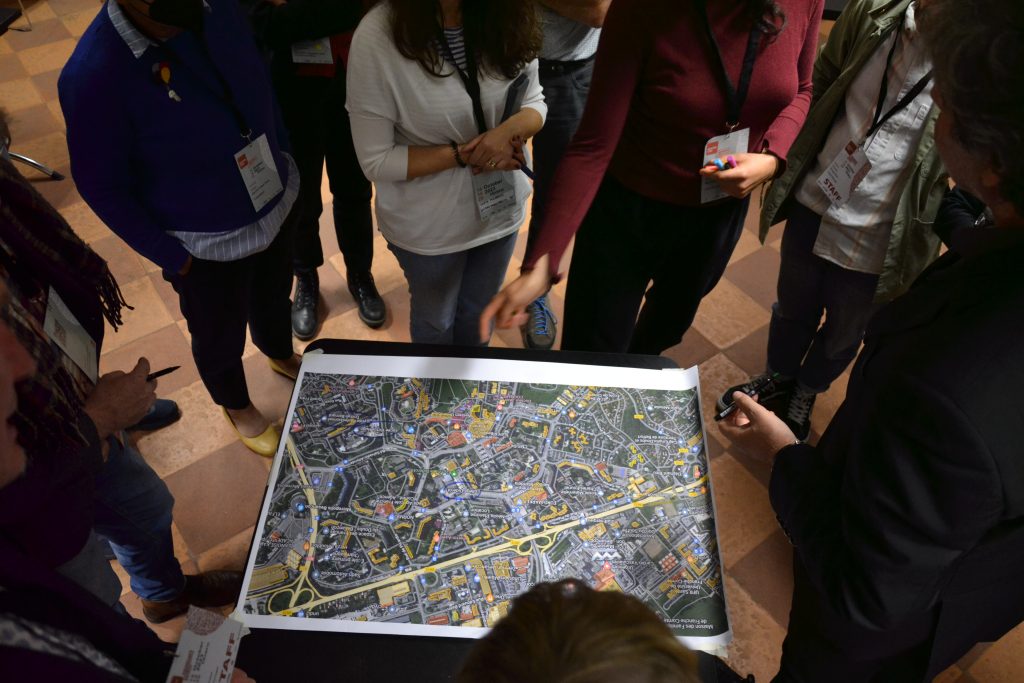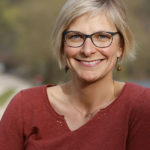Lasting renewable and fair solutions
Mapping invisible people and unknown spaces at our Annual Conference in Modena
As part of Energy Cities’ inspirational day in Modena, on 18th October, we gathered a bunch of renewable experts and activists in the fictional city of Andria. For one day, this was our place to discuss the challenges of bringing (renewable) energy access and energy justice to all. People did not need a GPS to navigate through Andria and its lively workshops. They let empathy and foresightedness be their guide.

Take-away 1: We must give space to the invisible citizens if we want the energy transition to be fair and effective. They bring the power we all need!
We discussed energy poverty and how we can give space and visibility to those who are usually standing and living in the blind spot of policies. How can we give space in decision-making and involve them fully in the energy transition? And what can we actually learn from them? And why do we call “vulnerable” those who show most strength and resilience?
Big inspiration came from Jan de Pauw, project engineer at the citizen energy cooperative Ecopower and energy advisor for the city of Eeklo (Belgium). He presented the outstanding energy poverty support program which was initiated by the City of Eeklo together with Ecopower: This scheme, which has been developed and launched in the framework of the POWER UP project, will enable low-income households to become members of an energy cooperative. How? The city pre-finances cooperative shares and lends these to people who would not be able to pay this upfront cost on their own. Over several years, these beneficiaries will then pay the share back through a small monthly fee. As of day one, though, the shareholders will be full members of the Ecopower cooperative including all rights that come with it such as getting renewable energy at a fair price or having a voice at Ecopower’s decision-making. This rolling fund of pre-financed social energy shares makes local renewable energy accessible for all. It is a first of its kind in Europe and has great potential to be implemented in other local governments wanting to help people in energy poverty.
Take-away 2: Legal stumbling blocks require patience, but they aren’t a reason to stand still
Italy’s national decree on energy communities was meant to be published many months ago. While impatiently waiting for it, we organised together with Confcooperative a training session on energy communities for Italian civil servants as part of the SCCALE 203050 capacity-building series. Despite a complicated and lengthy adoption of the legal framework, local authorities do take action to deploy renewables and to put them in citizens’ hands. They are keen on getting the right skills and they wish to level up their city-citizen collaborations around renewable energy projects! We provided participants with success stories and guidance from Italian peers about the very practical steps to create an energy community.
Take-away 3: Municipal space needs to be clearly identified and made available to the community

The afternoon workshop put public assets for local community energy on the spot. We’ve explored all those different spots in which renewable energy can find a place in a city: roofs and façades, parking lots, water reservoirs, brownfields – even cemeteries! Much of it still remains pretty much untapped as neither local governments nor other players in town do know what they could use to produce or consume locally produced energy.
After an introduction to the workshop, Anik Lehman-Tron from the Energy Department of the City of Besançon (France) presented the approach by the City of Besançon. She talked about their strategy to quantify available renewable energy, to map suitable space and to identify consumers and producers in their Planoise district. Planoise is a low-income area with high social mixity. Annick’s presentation was first followed by a Q&A session with the audience. All participants were then brought to an XXL-format map of the Planoise neighbourhood to do a joint spatial analysis and exercise around renewable offer and demand.
Next we had a presentation by Anna Francis from Energy Cities on the LIFE LOOP asset match-making tool. When released in December, this will be the very first European-wide platform allowing cities to show their local people that they care for the development of renewables and that they offer space for those who want to invest in it!
We ended with the success story of Balkan Solar Roofs in Porec, Croatia. Their ambitious local policy, made visible through the Sunny Office, first one-stop-shop in the area, has brought renewable development to another level.
We could have continued the conversation, talking about land constraints for urban renewable energy, data or modelling challenges, participation and how we make all this work for vulnerable people…but the sun started sinking into the narrow streets of Andria.

